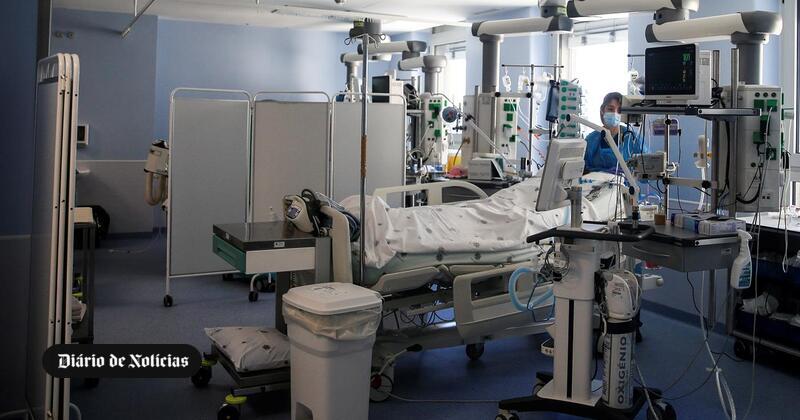When someone at 15, 20, or 25 receives news that they have a lifelong illness, it is not easy to manage the information. And when the pathology involved has a significant disabling aspect, acceptance is more complex. For this reason, says Anna Sampaio, it is necessary to ensure nutritional and psychological support to overcome the initial fear. At the Portuguese Association of Inflammatory Bowel Diseases (APDI), which he chairs, consultations with psychologists and nutritionists, with great knowledge of Crohn’s diseases and ulcerative colitis, are available, helping patients to overcome the most difficult stages.
The president of the association, who herself is a carrier of Crohn’s disease, knows firsthand the difficulties of living with this diagnosis. 22 years ago, when he received the news, expectations were much less encouraging. “It used to be very common for people to know they were going to have surgery every five or 10 years, but not anymore.”
Today the reality is quite different, and despite the diagnostic difficulties, the treatments are less aggressive and guarantee a better quality of life. “I usually tell young people diagnosed today that they don’t know what Crohn’s disease or ulcerative colitis was like before 2000. It was really painful,” confirms Anna Sampaio, who remembers the day she first visited the association he now heads. “I saw the stomachs of some of the other colleagues full of scars, but they all had smiles on their faces.”
The new treatments guarantee a better quality of life and avoid the repeated operations that patients had to undergo.
Demystifying these diseases and ensuring more and better information for the population was also the goal of the conversation that brought together Ana Sampaio and Paula Lago, gastroenterologist at Centro Hospitalar e Universitário do Porto (CHUP), which took place yesterday, the date on which the international conference took place. . The Day of Inflammatory Diseases is celebrated, which you can see in full on the Diário de Notícias website. This was also the first of the “Dialogues: Health and the Future,” an initiative launched by the newspaper in partnership with AbbVie.
More effective treatments and 100% reimbursement
But what are, after all, inflammatory bowel diseases? “We’re talking about two inflammatory diseases — Crohn’s disease and ulcerative colitis — that affect the digestive system,” explains Paula Lago. But despite being part of the same group of diseases, the two diseases are different, as the former can affect the entire digestive system, from the mouth to the anus, while in ulcerative colitis, the inflammation affects only the large intestine, with inflammation. Which is manifested in wounds inside the digestive system. Common have difficulty in diagnosis.
The first symptom is usually frequent diarrhea. “More than three days with diarrhea and several trips to the bathroom, with abdominal pain and some accompanying fatigue should be warning signs,” Anna Sampaio explains. However, in some rare cases, there are people whose first signs something is wrong are constipation, loss of appetite and weight. Symptoms are often confused with other diseases because “inflammation can also affect organs outside the intestine in up to 30% of cases and can be a symptom of disease,” says the APDI chief.
“There is heterogeneity in appearances and in the way the diagnosis is made,” stresses Paula Lago, who adds: “The main diagnostic tool is endoscopic examinations of the gastrointestinal tract, colonoscopy as the first test after being performed and exclusion of infection through the stool collection.”
Currently, experts estimate that there are about 25,000 patients in Portugal, out of 10 million worldwide, mostly young people aged 15-30, although there is a peak in late diagnosis around 60/65 years. “And we also have a percentage that is increasing with pediatric cases, which is about 30%,” says Paula Lago. The causes are unknown, but the gastroenterologist says, he estimates that the Western lifestyle could be the trigger.
In the past 20 years, experts have explained, the advent of biotechnological drugs in Portugal has dramatically changed the treatment landscape.
Genetic susceptibility is also part of the equation, as the main known risk factor for IBD is that a family member will develop the disease. “Family history is present in about 15% to 20% of cases,” says Paula Lago. Moreover, it is a chronic, non-communicable and non-infectious disease, and it must be strengthened because, as Anna Sampaio reveals, there are some taboos regarding it. “Patients themselves sometimes have limitations within some circles because there is still a lack of clarity on this aspect.”
But despite the disease’s conditions, treatments are now more effective and less invasive. In the past 20 years, experts have explained, the advent of biotechnological drugs in Portugal has dramatically changed the treatment landscape. Paula Lago notes that “patients significantly improved their quality of life, and in some cases easier control of the disease was achieved, and the patient was able to lead a normal life, which is the main thing in the absence of treatment.” At the moment, there are many therapeutic weapons that are well used and in time, it is possible to obtain a complete healing of the intestinal mucosa. “These are expensive drugs, but the SNS makes up for it 100%.”

